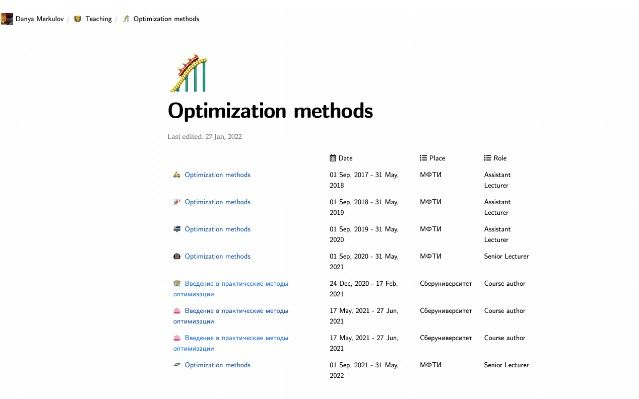JSON Memoize
What is this?
json_memoize is a straightforward tool for light-duty persistent memoization, created with API calls in mind. It stores the arguments passed to a function and that function call's returned value in a dict, and writes that dict's contents to disk in a .json file.
Arguments at a glance
max_age- sets the maximum allowed age in seconds before a cached entry is considered invalid.max_size- sets the maximum number of entries that can be stored in the cache.force_update- overwrites cached values with fresh ones.cache_folder_path- sets the location of the associated .json file.app_name- if nocache_folder_pathis provided,app_nameis used to create a folder in the default user cache folder.cache_file_name- manually sets the name of the cache file.
Basic Use
Import and add the decorator @memoize to memoize a function.
Warning: json_memoize stores arguments passed to memoized functions in a plain text format. Do not pass your API key, or any other sensitive information, to memoized functions.
Here's a slow api call:
def slow_api_call(arg_1:str, arg_2: str) -> str:
response = requests.get(f"https://wowthistakesforever.slow/arg-1={arg_1}&arg-2={arg_2}")
return response.text
Add the @memoize decorator to memoize it.
from json_memoize import memoize
@memoize
def slow_api_call(arg_1:str, arg_2: str) -> str:
response = requests.get(f"https://wowthistakesforever.slow/arg-1={arg_1}&arg-2={arg_2}")
return response.text
If the function is called again with the same arguments, the resulting value will be retrieved from the cache without executing the function.
max_age
If you don't want to keep data that's too old, you can set a max age.
@memoize(max_age=600)
def slow_api_call(arg_1:str, arg_2: str) -> str:
...
The age of an entry is determined from the time it was first added to the cache. If the difference between that time and the current time exceeds the max_age value, the cached value will be overwritten with a fresh one. Entries that have exceeded max_age will not be written to disk. If max_age is not set, cache entries will not expire. Note: max_age is in seconds. Consider creating variables for measures of time that are inconvenient or unclear when written in seconds, e.g.:
one_week = 604_800
@memoize(max_age=one_week)
...
max_size
If you don't want to cache too many entries, you can set a maximum number of entries to store.
@memoize(max_size=10)
def slow_api_call(arg_1:str, arg_2: str) -> str:
...
If max_size is set, json_memoize will delete cache entries from oldest to youngest until it meets the specified size limit before it saves the file to disk. As with max_age, the age of an entry is determined by the time at which it was first added to the cache, not when it was most recently used. Note: The size limit is only enforced when the cache file is being written. While the JsonCache object is live in memory, the limit can be exceeded.
force_update
If something in your ecosystem has changed and you want to force the cached values to be updated with fresh information, you can do that too.
@memoize(force_update=True)
def slow_api_call(arg_1:str, arg_2: str) -> str:
...
If force_update is True, all entries in the cache will be overwritten, even if they have not yet reached max_age.
Setting the Cache Folder
To reduce the likelihood of name collisions, json_memoize stores its cache files in named folders. There are multiple ways to specify where this folder is located.
Automatic folder creation using app_name
If a value is provided for app_name, json_memoize will use this value to name a new folder within the operating systems preferred user cache folder. e.g.:
@memoize(app_name='my_app') will create a folder structure like ".cache/my_app/"
Manual cache folder assignment
If a cache_folder argument is supplied to the decorator, it will store cache files in that folder. Note: if cache_folder is supplied, it will overrule app_name.
Default folder location
Warning: Not recommended!
If neither cache_folder nor app_name is provided, json_memoize will use its default folder name, yielding a folder structure like ".cache/json_memoize/"
This is not recommended, as intermingling cache files from multiple apps increases the risk of file name collisions, which could cause apps to behave unpredictably.
Naming Cache Files
By default, json_memoize will create each cache file using the name of the function being memoized, e.g.:
@memoize
def slow_api_call():
...
This will create a file called "slow_api_call_cahce.json".
Setting a custom file name with cahce_file_name
If a value is provided for cache_file_name, json_memoize will instead use this value to name the cache file.
Storage and Performance Details
Storage
When a call is made to a memoized function, json_memoize will generate a string from the passed arguments, and use that string as the key in its internal cache dictionary. The value returned by the call is stored as the associated value. Writing this dict to disk is accomplished using json.dump(). Seperate cache files are made for each memoized function.
Warning: It is assumed here that @memoize will be invoked in situations where both the arguments and the returned value of a function have consistent, unambiguous string representations. Passing arguments with unreliable string representation will cause the cache to behave unpredictably. json_memoize will log a warning if it detects something that looks like a repr() output that points to a memory address in an incoming argument. Also, once again, do not pass security-relevant information to memoized functions.
Performance
json_memoize is intended to be performant relative to a slow API call, and has not been optimized further than that. If max_size is exceeded, the entries in the dict are sorted so the oldest ones can be dropped. Setting aside hard drive performance, this sorting operation is the most costly step of the process, and it occurs every time the cahce file is saved.





